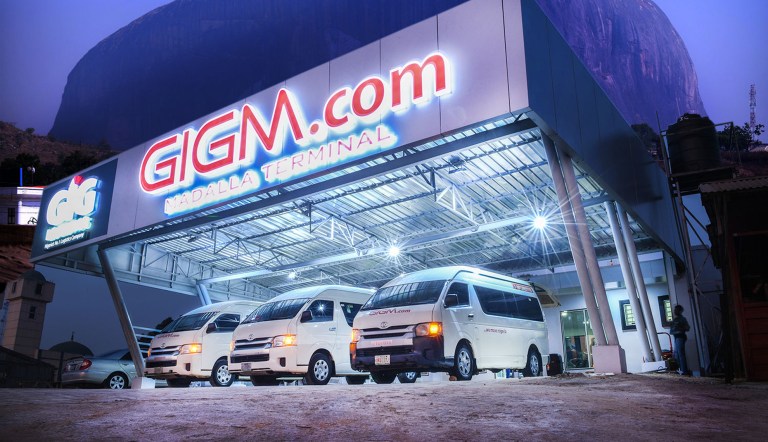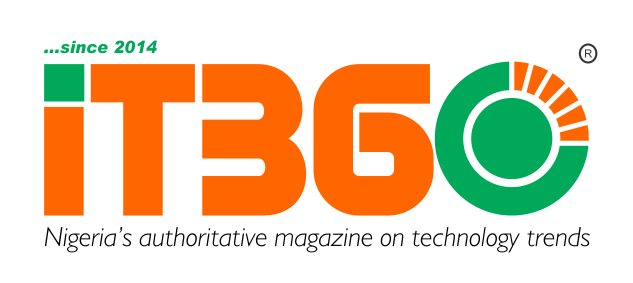Conversations around the future of mobility continue to gather momentum as private and public sector stakeholders converge on Lagos Island to make critical assessments and forge sustainable pathways for the industry.
Technology-driven mobility, which is seemingly trailing in Nigeria and Africa at large, is a critical component that provides economic benefits with positive multiplier effects such as better accessibility to markets, employment, and investments.

GIG Mobility (GIGM), a company that provides seamless mobility services to commuters across Africa, is now leading conversations on how Africa’s largest economy must position itself properly to secure the future of mobility that is driven by technology, especially as the world embraces electric vehicles (EVs).
The mobility giant, last week, organized Africa Mobility Conference in Lagos tagged: ‘Pathway to the future of mobility in Africa,’ where leading players and stakeholders came to the table to have a seemingly fruitful discourse.
Some of the notable stakeholders at the conference were – Frederick Oladeinde, Transport Commissioner, Lagos State who was represented by Hafeez Toriola; Abimbola Akinajo, Managing Director, Lagos Metropolitan Area Transport Authority (LAMATA); Segun Ogungbemide, Lagos State Commander, Federal Road Safety Corps (FRSC), Edward Mobogo, COO, Myride Kenya, among others.
Enahoro Okhae, who leads as the CEO at GIG Mobility (GIGM), after the first segment of the conference, said it was clear upon his assumption of office that players in the industry were not the ones shaping the narrative.
While it remains fundamental for a concrete synergy between operators and regulators, he said that there was no intentional platform that brings all stakeholders together, hence the conference.
“We cannot achieve this goal – securing the future without the players across the industry and government.”
He said GIGM thought the first step was to bring everybody together and begin to change and shift that narrative on how to plan for the future of mobility in Nigeria.
As a key player in the sector, GIGM is already positioning itself for global opportunities, deploying massive technology to streamline and solve mobility problems in Nigeria and beyond.
He said GIGM is already doing things that people think cannot happen in Nigeria many years ago by leveraging technology. And one step further is to bring the right people in and begin to address challenges that will shape the future of mobility.
According to Okhae, mobility is just about moving people or an item from one location to another; it involves much more – lifestyle.
Public-Private Partnership
GIGM is canvassing for a Public-Private Partnership (PPP) with the Lagos State Government to ensure the rollout of electric vehicle charging port infrastructure.
The proposed PPP strategic move is also open to other state governments across Nigeria. GIGM is currently mapping out a strategic plan to unveil its electric vehicles as soon as it finishes studying data from GIG Logistics, a sister company that launched Evs in 2021.
GIGL signed a Memorandum of Understanding (MoU) with JET Motor Company, one of the fastest indigenous automobile assembly and distribution companies.
EVs are powered by technology – a collector system with electricity from extravehicular sources and powered autonomously by a battery by converting fuel to electricity using fuel cells or a generator.
The vision of GIGM is to effectively and sufficiently leverage technology and have many EVs with various charging stations across the country which will aid mobility in Nigeria and beyond. Okha said with the support of the government by proving charging ports for electric vehicles at many locations in the country will have a positive impact on the cost of operation, such as eliminating the cost of using diesel and petrol, as well as significantly reducing repair expenses, while also making the environment less harmful by reducing carbon emissions.
We want a situation where we can move EVs from Lagos to Ore (Ondo State), then we get people trans-loaded to another already charged EV in Ore, then it moves to another destination, gets trans-loaded again to another charged electric vehicles. We want to be able to take the vehicles to places like Jos and all parts of the country.”
Okhae reiterated that GIGM is still gathering data from GIGL and developing strategic plans to hit the ground running as soon as practicable. However, maintained that the company is willing to bring in 200 electric vehicles should state governments start buying into the vision of shaping the future of mobility.
“If the Lagos State Government can put together charging ports for our EVs and then we won’t have to spend a huge amount of money on operational costs. It’s so easy for us to then run our business.
We are ready to bring in 200 electric vehicles into the country immediately, we want to see a situation whereby we have state governments providing charging ports for electric vehicles.”
Stakeholders’ View On The Future Of Mobility
According to Hafeez Toriola who represented the Transport Commissioner for Lagos State at the conference, there is a policy document that addresses traffic congestion in the state, better environment time of reducing pollution, as well as traffic management.
He said the Lagos State Government is particularly concerned about electric vehicles, however, needs a document that will ensure the incorporation of the private sector.
Toriola agreed that having a PPP arrangement would help provide the needed infrastructure as the government does not have all the funds. He revealed that the state government has involved the private sector to carry out the fourth mainland bridge project.
“So let me just summarize it. It’s all about having an integrated transport system, advanced traffic management, and private sector engagement or partnership.”
According to MD LAMATA, future mobility must speak to the ease of mobility by leveraging technology to drive physical infrastructure. She said all transportation modes such as land, water, and rail must be fully integrated and driven by technology.
“Think of the ease of mobility, so we can’t take away technology from it. We will continue to drive physical infrastructure, which must be aided and completely driven by technology.”
According to Okhae, the future is technology, collaboration, and having the right policies that will allow all players in the mobility sector to thrive.
He said there is a need for a decentralized transportation framework that would allow different states to grow, however, harnessing everybody together. However, such a framework should allow different states at different levels to flow with what works for them.
Potential Partnerships
There is a potential partnership between GIGM and LAMATA, Lagos State Transport Ministry that will possibly reshape policies that will be business-friendly, massive infrastructure deployment for electric vehicles, and others.
‘I can confirm to you that because of this conference, GIGM is going to collaborate with LAMATA. We will also collaborate with other governmental bodies present here today,” Okhae said.
The new GIGM boss will bring his playbook and work towards reshaping the mobility sector said the conference was very much different from other conferences which do not have follow-up actions and implementations.
“After this conference, our team will start moving towards, it’s not just about talking without doing anything. We have to do something about it. I have come to realize that I want to make some decisions.”
Stakeholders at the Africa Mobility Conference at Eko Hotel, Lagos
He said innovative transformation will elude any nation that is not ready to move forward and that moving forward requires drastic calculated actions.
“I’ve got to understand that we have to take power in our head and determine our future. That’s what we are doing, GIGM is determining the future of mobility thus and the future of the next generation.”

